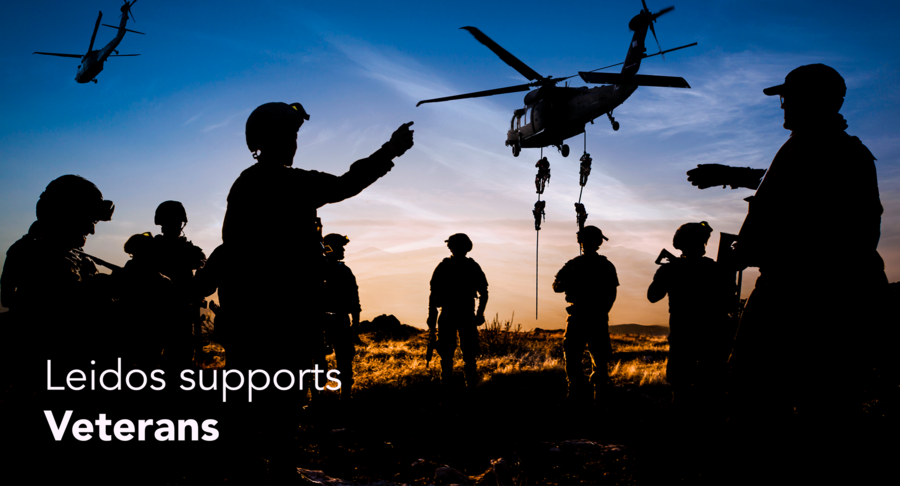How working at Leidos gives Army veteran, Edwina Hutton-Fellowes the opportunity to continue serving
As a former Lieutenant Colonel in the Royal Logistics Corps, Leidos' Head of Logistics Edwina Hutton-Fellowes has dealt with everything — from herding sheep across the Welsh mountainside during the foot-and-mouth outbreak to hanging out of a helicopter to assess an oilfield fire to managing an unexpected power cut just three hours before Tony Blair was supposed to be delivering a live television address from a hangar in Iraq.
So, when in 2016 she took up a position in Logistics Commodities & Services Transformation (LCST) at Leidos she felt more than prepared for the challenge.
“I'd been working alongside a Leidos employee embedded with us at the Defence Supply Chain Operations & Movements (DSCOM), helping him understand what we do," she explains “I was looking for some commercial experience and, quite naively, asked for a few weeks work experience because I felt that would be enough time to crack working in a civilian environment."
That two weeks initiated a six-month placement and then a permanent position, partly thanks to the intervention of former Brigadier General and then SVP of logistics, Barbara Doornink, who was familiar with Hutton-Fellowes and keen to have her as part of the Leidos team.
As Head of Logistics since April 2019, Hutton-Fellowes is now responsible for performance across the Storage and Distribution operation coordinating Leidos' input to the storage and global movement, of anything that a service person might wear, use, eat, or drive.
Having deployed to a range of operational theatres really hones your attention to detail because you understand the implications of your work and the fact that there are service personnel whose lives depend on you making sure they have what they need," she says. “Bringing that military insight and expertise into the commercial arena has benefited me in my work at Leidos.
Edwina Hutton-Fellowes
Head of Logistics
That's not to say the move to civilian life wasn't without its challenges.
“For 22 years I just went to the wardrobe and pulled out the same uniform every day," she says. “So, my biggest problem was just deciding what to wear every day. I know that may sound trite, but appearance, just as it is within the Forces is hugely important and personalising my brand took a little more time than I thought it would. I didn't just want to wear a suit as I would have done previously, I wanted to showcase a little bit more of me."
Having benefited from the ability to reach out to the Leidos network when she needed support or advice in the early days of her career, Hutton-Fellowes now relishes the opportunity to share her commercial experience with other military personnel, who regularly email her for advice on making the same transition to the civilian sphere.
“I value that chance to share these insights because you still feel part of the military community," she says, “That connection is something that endures, and when you're in a difficult spot, you know there are people you can reach out to — even if its someone you haven't spoken to in years."
Beyond challenges of CV preparation and salary negotiation, according to Hutton-Fellowes, the main difficulty that veterans typically have with transitioning out of the military is in struggling to find employment that has purpose in their new civilian roles.
“The main thing that comes up when I talk to other veterans is that they worry about losing their sense of belonging, of being part of a team working towards something meaningful," she says. “That's why Leidos is such a great company to work at as a veteran because you're dealing with people who are like-minded and it gives you that chance to continue serving, just from a different standpoint."




